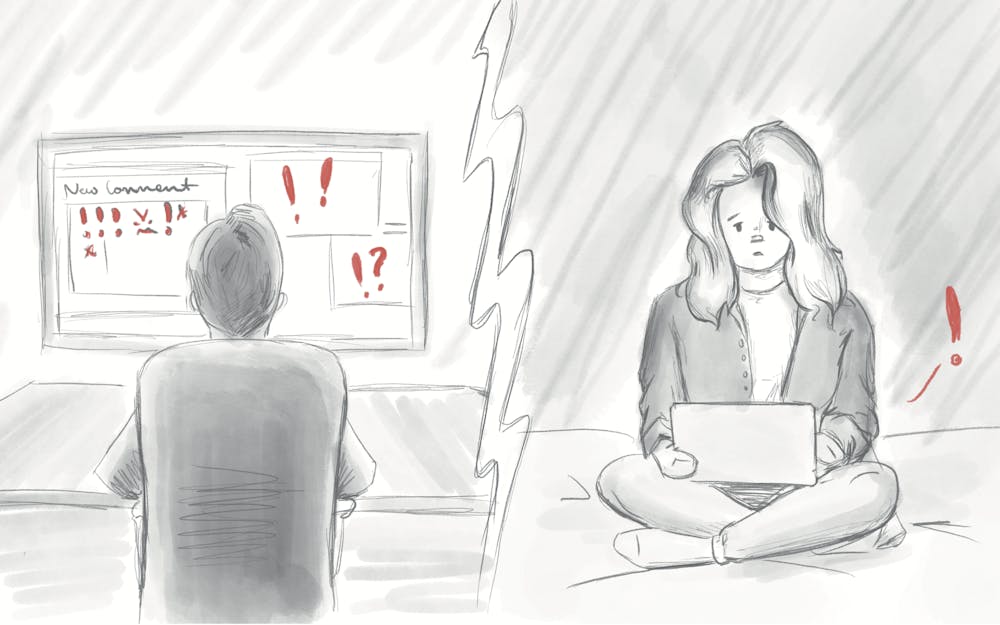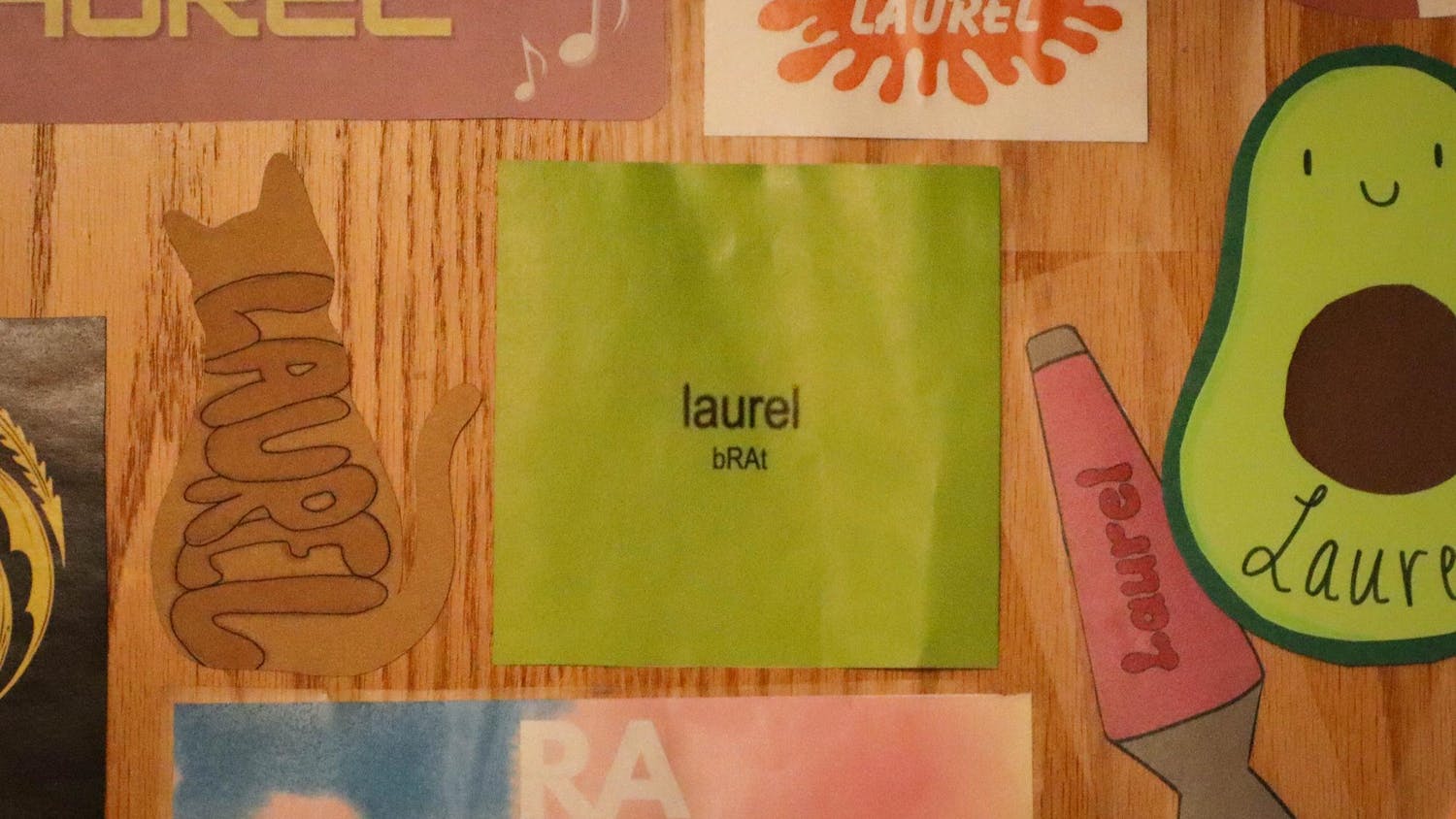Millaze is from what she calls a “musical family.” She grew up sitting on the organ bench next to her mother. In 2014 she started releasing music online, which evolved into her full-time job. When the musician decided to start building her social media brand at the end of 2022, she wasn’t surprised when the trolls started crawling in.
Originally from Pittsburgh, the Bloomington local musician and producer creates what she calls alternative pop — a mix of solo piano, conversational lyrics and her interest in emo music to create a DIY punk spirit sound. Over the course of her career, Millaze said she has written hundreds of songs, close to one thousand even.
“I relate to how people describe music as a felt sensation in the body,” Millaze said. “That’s why I go after so many sounds.”
Millaze said her dad had always wanted her to be more confident. After his death, Millaze decided she would try to boost her self-confidence by posting her music on Instagram. She said she knew social media had untapped potential and was going to put her preconceived notions aside to give it a try.
She began telling stories about her songs on the internet. The lyrics were usually about the death of her father and battles of eating disorders. After about nine months, Millaze said she was ready to change her strategy.
“It was driving me nuts because I was getting really behind writing and producing music,” Millaze said. “I was like, ‘This is going to be super uncomfortable, but I have to combine the two or else I’m ever going to get back into the studio again.’”
She began posting reels onto Instagram showcasing her process of creating music, often made complete with missed notes and slip-ups. But Millaze said she embraced the imperfections; it was all a part of the process.
“There are only so many hours in a day,” Millaze said. “So, I had to just film me doing a take and turn that into a quick video to upload online. Sometimes the take wasn’t good, and I would just make a joke out of it or show that I missed notes, or that I just wrote the song, or that I don’t have the lyrics. I just started sharing all that.”
At the end of January, Millaze took her followers along the process of creating a demo day-by-day. By the end of the week, she applied a little makeup, put an LED light strip on the kitchen cabinet behind her and filmed a video lip-synching to the song she had only written Monday. Millaze said once the video was uploaded, she was inundated with hate from internet trolls — users who comment something hurtful to provoke some sort of argument or reaction.
“It was just insane,” Millaze said. “People couldn’t handle it — the fact that it didn’t sound perfect because it wasn’t finalized.”
The Instagram reel garnered more than 620,000 views and 1,200 comments. Other reels using the same song, “Override” posted by the musician amassed more than 1.5 and 2.2 million views. The video was even picked up by “cringe parody” accounts. Millaze wasn’t alone, artists from Jason Aldean to P!nk have spoken on their experiences receiving hate from internet trolls. She said she expected something like this to happen.
“On the internet people can be anonymous: They have finstas,” Millaze said. “They’re using it sometimes just to be mean. It has nothing to do with me. I could look, dress, sound, present as anything and some people are just going to find something to pick up, because that’s what the internet gives them unfortunately — the freedom to be nasty.”
Millaze said she felt the trolling was demonstrative of bigger picture issues like gender expectations.
“Being a woman in music production is very rare,” Millaze said. “A lot of the trolls were also men not being able to handle a strong woman producing.”
A“Be the Change: Women Making Music” survey showed 81% of women say navigating the music industry is harder for them than it is for men, with sexual harassment and misogyny as the leading challenges. Music composition, production and sound, like Millaze’s work, has long been a male dominated field. She said after the reel of her demo went viral, she received multiple direct messages from men asking to be her producer instead.
Millaze said she switched the narrative and took control of how she responded to the internet trolls. While some days are more challenging than others, Millaze said the trolls have never discouraged her from making music. She even gained a few thousand new followers.
“It has felt really good,” Millaze said. “Despite the trolls I am still showing up and I exist despite the mean things they could possibly say to me about how I’m wrong. I know I’m not. It’s been the ultimate exercise in self-love.”
CORRECTION: A source was misquoted in a previous version of this article.




